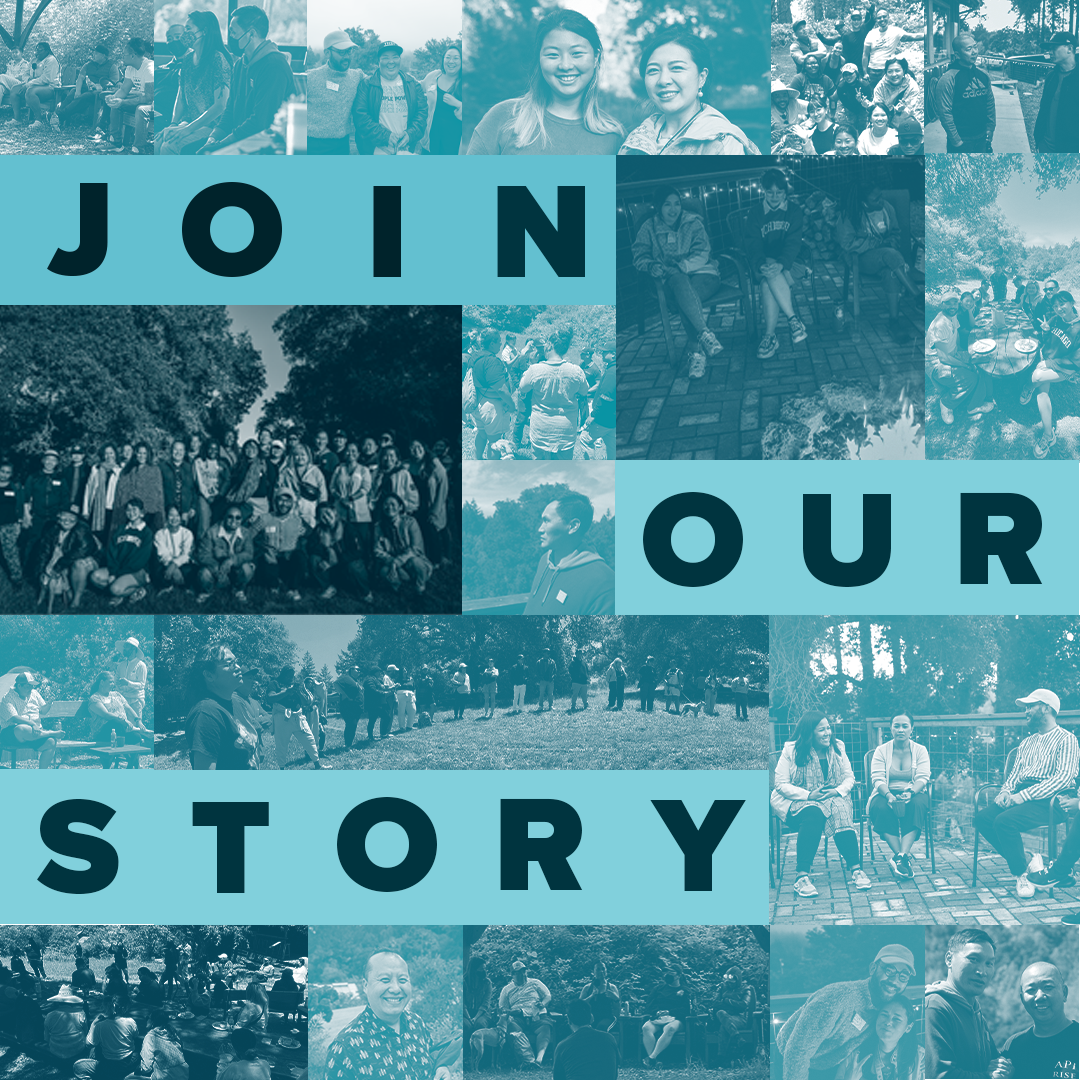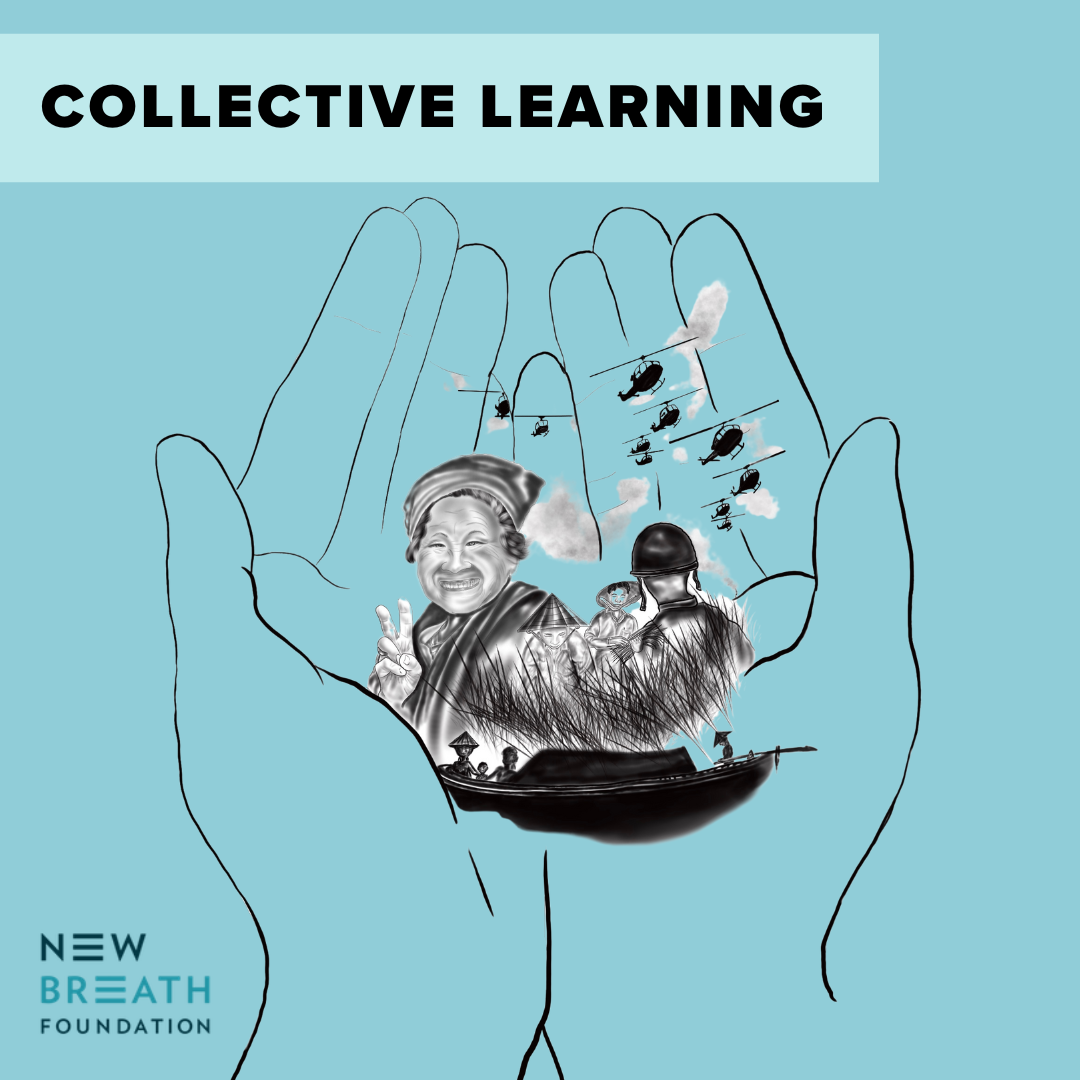Below, you’ll read personal stories from one of NBF’s community members that focus on the values that ground our work: Racial Solidarity, Collective Learning, Collective Healing, and Collective Liberation.
We’ve commissioned Chanthon Bun, a community member impacted by the criminal legal system, to provide artwork to accompany these stories. Bun is also a Reentry Coordinator at Asian Prisoner Support Committee (APSC).
Thanks to a generous supporter, each gift NBF receives will be matched dollar for dollar up to $50,000 from now until Tuesday, December 19, 2023.
Thank you for being on this journey with us, and don’t forget to visit this page each week for the latest story and illustration.
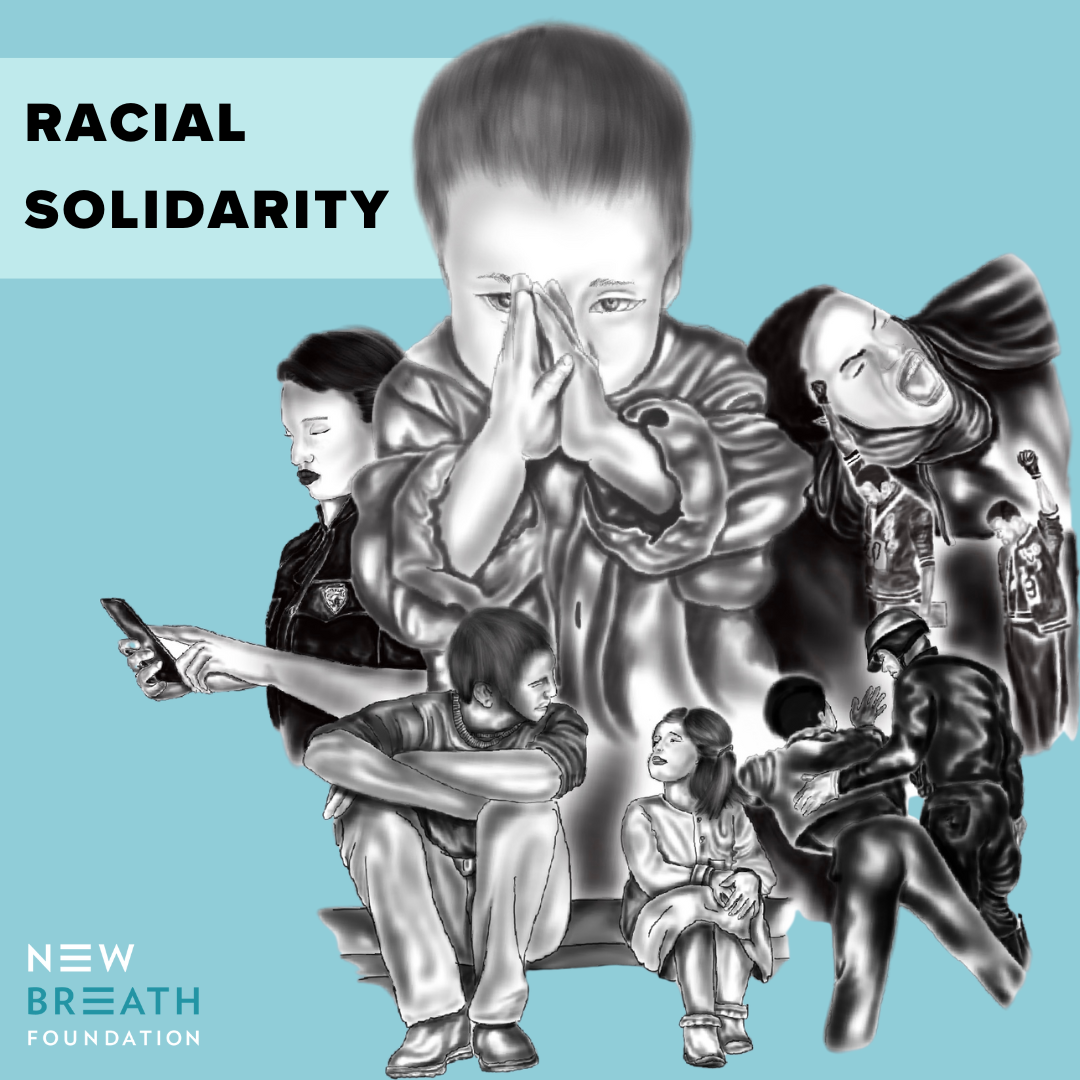
Racial Solidarity – Sachi Yoshii
In 1991, I was 8 years old, and my family was living at the church parsonage in the City of Alameda. Several police officers were caught using the computers in their vehicles to message violent and racist slurs targeting Black people. I remember naively asking my Dad, “Why would the police do this if they are supposed to protect everyone?” He responded that it’s complicated, but not everyone is protected equally, and we needed to change that. I never forgot the conversations that occurred inside our home and have always admired how fiercely he has fought to lift up community voice. Children listen.
Sachi Yoshii is a founding board member of New Breath Foundation. She has worked in the philanthropic sector for over 25 years in local, national, and global foundations to shift power and resources to frontline social justice leaders of color. Sachi is currently a Board Member of Northern California Grantmakers and on the Advisory Board of JustFund. She has a dual degree MBA from Columbia Business School and London Business School, and a BA from UC Santa Cruz. She lives in Oakland with her partner and twin daughters.
Collective Learning – Thy Vu
Collective learning holds immense significance for me because it embodies the power of shared knowledge and communal growth. I first experienced collective learning when I was eighteen. During a summer youth program, I and 20 other Vietnamese immigrants and Vietnamese Americans shared spaces and committed to learning about the Vietnamese American experience in the U.S. for six weeks. During that time, we learned about the American/Vietnam war, the many waves of Vietnamese refugees after the Fall of Saigon, how our people rebuilt their lives with nothing in this foreign land, and the racial tension they experienced when arriving. Most importantly, not only did we learn about each other’s lived experiences through open dialogues, but we also conducted interviews with 80 community members to better understand their experiences as part of the Vietnamese diaspora in Philadelphia. I realized that our experiences are unique threads to the rich tapestry of our community’s story. Through collective learning, I acquired a deeper insight into my community that surpassed the knowledge attainable from any textbook.
Every collective learning experience I have had since validated the importance of this learning method. It offers a unique experience where individuals with diverse perspectives can share their insights, fostering a deeper understanding of complex topics. Additionally, it underscores the idea that we are all teachers and students.
Thy Vu is the Operations & Development Coordinator at New Breath Foundation. She was born in Vietnam and migrated to Philadelphia with her family in her early teens. She brings years of experience in non-profit operations and development. Since college, she has been involved in local community organizing work in various capacities. Thy is passionate about making changes to the current system and supporting those affected by it.
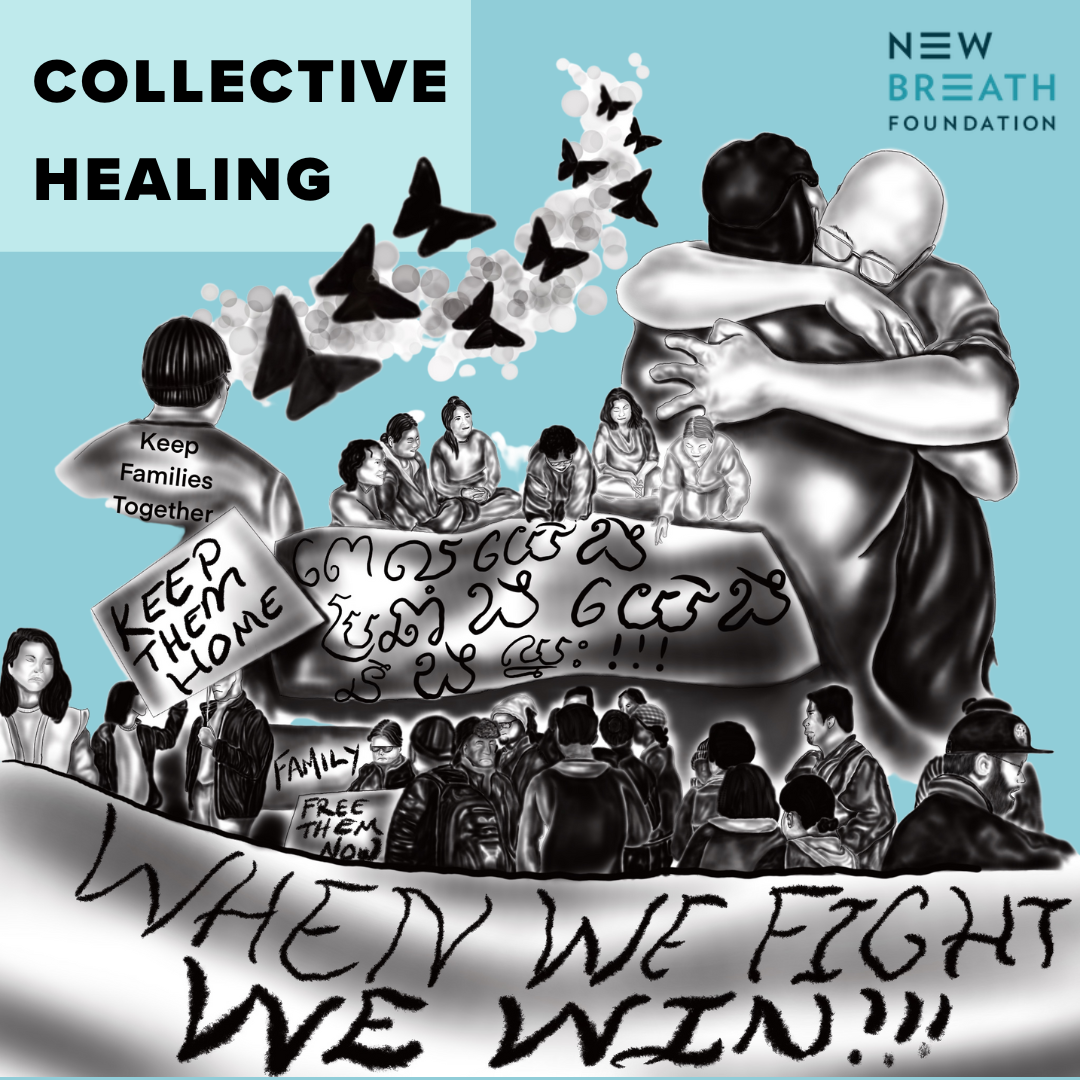
Collective Healing – Elijah Chhum
Collective healing is witnessing and holding each other in our strength and suffering. It’s rising up together, standing by each other at anti-deportation rallies, and holding the parents, the children, and the spouses as they are being ripped apart from their loved ones. Collective healing lets our communities know we do not need to suffer alone.
On March 13, 2019, Bay Area healers, organizers, and our Cambodian elders gathered outside the ICE Building in San Francisco to support families and impacted individuals as they were about to be detained and deported to Cambodia, a country they never knew. Nothing can prepare you for this deep sorrow, helplessness, and rage. Witnessing these impacted leaders getting taken away changed my life. That moment strengthened my resolve to commit to this work and empowered me to become the leader I wanted to become for my community.
I remember us initially chanting quietly outside the building, “When we fight, we win!” and then in Khmer with more conviction, “Bael Yung Prachanh, Yung Chhneah!” Desperately hoping that our community members detained behind cement walls could hear our cries if we were loud enough; if not them, then the heavens and our ancestors. After months of actions, rallies, and bringing youth, elders, and families to speak with elected officials, our impacted leaders returned and were reunited!
One of the folks we fought for was released and pardoned by Governor Newsom, and he recounted that he could hear our voices when he was inside, standing next to a guard. Our chantings penetrated the stoic cement walls, and the soundwaves moved past all those floors that separated him from the community. The ICE agent looked at him and said, “Oh, I don’t know why they’re saying that and having a rally. You’re going to be deported. There’s no hope.” Our impacted leader was silent and didn’t say anything to the agent, but he kept it inside his heart that our voices rose and gave him hope.
Collective healing is action and experiencing the community gathering together. It celebrates our gifts, talents, ancestral rituals, and intergenerational wisdom that can bring healing. Uniting our voices is healing, and we will continue raising them until we are all free.
Elijah Chhum is the Director of Community Wellness and Advocacy and the Co-founder and Director of New Light at the Center for Empowering Refugees and Immigrants based in Oakland, CA. As a child of Cambodian genocide survivors and a queer Khmer organizer living with disability, Elijah embraces his intersectional identities, which have helped foster intergenerational healing, community strengthening, and leadership development in his work. He advocates for individuals and families impacted by incarceration and deportation and centers their collective wisdom and community joy in the movement. Elijah is the first in his family to graduate from a four-year university and received his bachelor’s degree in Ethnic Studies at the University of California, Berkeley.
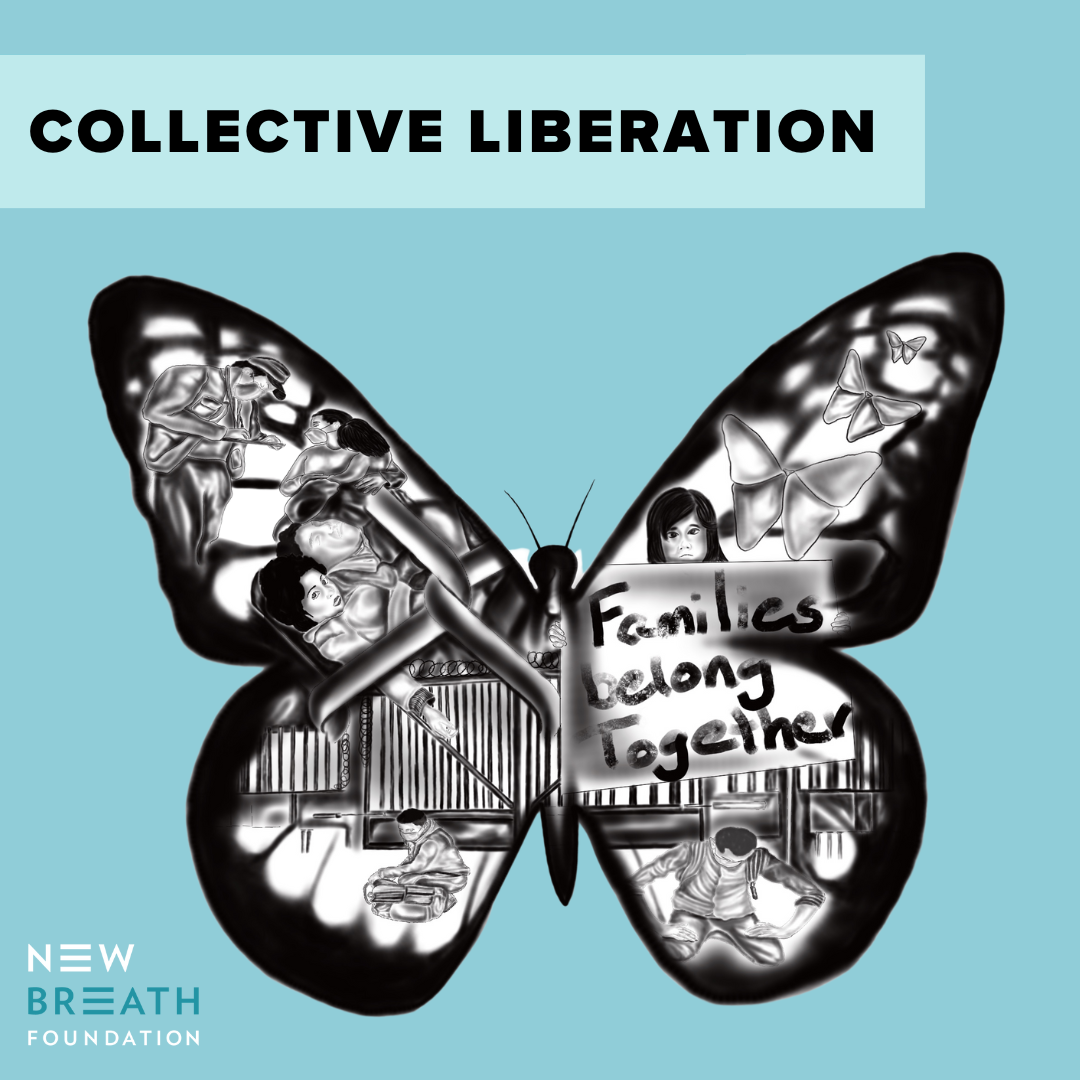
Collective Liberation – Lon Chhay
Living in San Diego, I’ve been on the ground to help provide aid at the border. I collaborated with others on transporting supplies from one location to another to support asylum seekers.
It’s heartbreaking to see people from all over the world seeking asylum at the U.S.-Mexico border. Many have traveled for months on foot, hoping to be granted asylum by the U.S. It’s unimaginable what they endured back home for them to risk traveling hundreds or thousands of miles to gain entry into a foreign land in search of a better life. Unfortunately, while waiting for processing, people are being held in open-air detention centers in the desert, exposed to the elements. They have nothing but the clothes on their backs, some even carrying small children, infants, or pregnant women. The government is not providing necessities such as water, food, warm clothing, or medical attention.
Seeing how communities have come together to assist those seeking asylum is inspiring. People from all over San Diego and its surrounding counties put aside political differences to purchase much-needed supplies for the thousands who hadn’t eaten in days and were freezing from the cold desert nights. After being processed by Border Patrol, many are left at transit stations in San Diego without any information or direction as to where they will go next. Communities stepped up to put people in contact with family or friends and transport them to train stations and airports to get them where they need to go. It’s truly inspiring to witness how our communities can come together for a shared purpose and strive towards improving the lives of those in need. When folks from every community join together to assist in every way to help asylum seekers get what they’ve traveled so far to obtain, it demonstrates to me what collective liberation looks like.
Lon Chhay is the son of refugee parents who fled Cambodia during the Pol Pot regime. He grew up in City Heights and has spent 22 years in the revolving doors of the legal system, where he experienced firsthand the injustices that marginalized communities face. Chhay has an associate’s degree in Sociology, Social & Behavioral Sciences, and Communications & Media Languages. During his studies, he was awarded the Student of Distinction Award. He is now pursuing an undergraduate degree in Sociology at San Diego State University.
Through his own experiences with gangs and incarceration, Chhay brings a unique perspective to the challenges that poverty has brought to our communities. His goal is to bring hope and unity through community education and family support. He currently serves as the Director of Alternatives to Incarceration and Reentry Services at the Asian Solidarity Collective.
About the Illustrator – Chanthon Bun
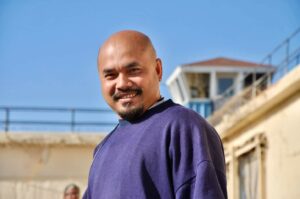
Chanthon Bun is a Reentry Coordinator at the Asian Prisoner Support Committee (APSC). He supports people in enrolling in educational opportunities, finding housing & employment, and speaking publicly about the experiences of incarcerated people and the impacts of incarceration and deportation in the community. Bun is one of 4 formerly incarcerated APSC staff members at risk for deportation. To learn more about the campaign to support Bun and his colleagues, please visit https://www.asianprisonersupport.com/apsc-4. Bun’s lived experiences and leadership have been a valuable contribution to our community.
